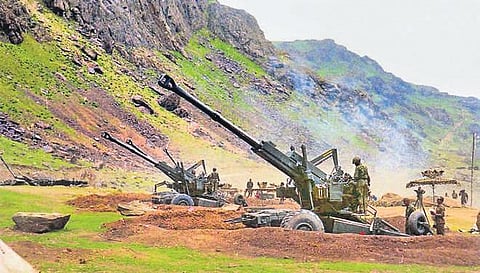

The controversial British Prime Minister, Winston Churchill, adored by the Anglophiles and despised by anyone who knows about the great Bengal famine, said that those who fail to learn from history are doomed to repeat it. There are many abhorrent things that this man had said about India, most of them a product of his racist mindset, but this is one of the things he got right about us. We rarely learn from history.
We are secretive about the failures and strategic mistakes of our past. While the armed forces deserve all our respect and adoration, we rarely discuss the strategic shortcomings that led to many debacles, as we feel it is unpatriotic to do so. Our prime ministers—from Jawaharlal Nehru, through Lal Bahadur Shastri, Indira Gandhi, Rajiv Gandhi, Narasimha Rao, Atal Bihari Vajpayee, to Manmohan Singh—had faced multiple challenges in the past and had taken decisions and followed strategies that they considered to be in the best interest of the nation. The present prime minister is no exception either. But our culture of deifying or criticising someone purely based on our political viewpoints has led to a curious situation. We have no way to analyse past mistakes or triumphs and learn from them. So we are doomed to repeat our mistakes. The investigative reports that led to the 1962 debacle, the LTTE fiasco, the Kargil War, the 26/11 Mumbai attacks, and recently the Galwan Chinese incursions remain secretive and away from the public gaze.
Manish Tewari, Congress MP from Punjab’s Anandpur Sahib and former Union Minister of Information and broadcasting, has penned down an excellent collection of essays in his book, 10 Flashpoints, 20 Years: The National Security Situations that Impacted India. The book doesn’t mince words, and it was a pleasant surprise that Tewari’s tone is neutral and factual, a rare quality for an active politician in today’s times. The book is not tainted with rants against the party he opposes as a politician. Nor is it silent about the lapses that the government he was a part of had committed. For example, in Chapter Five, Tewari strongly criticises the UPA government’s inaction after 26/11 and says India should have put in motion a kinetic response in the days following India’s 9/11.
While praising the open way Vajpayee had handled the Kargil War, he is rightfully critical of the inaction of the NDA government after the debacle of Operation Parakram. After the attack on the Parliament on December 13, 2001, India retaliated with Operation Parakram. The efficacy of the same could be debated, but what was glaring was the inefficiencies of our armed forces that got exposed. We lost more soldiers in mining accidents, mishandling of ammunition and explosives and other events in the operation than in the Kargil War. He points out how obtuse our bureaucracy and systems are even in utmost national security matters. Tewari laments about the lack of debate or ‘Informed Introspection’ of our national security calculus even within the rarefied echelons of the legislature.
The ambiguity in India’s No First Use (NFU) nuclear policy has cost the country a lot. He points out the non-integration between intelligence agencies in India. There are 11 intelligence agencies with overlapping mandates. He throws light on the lack of clarity in the operational command structure, analysis issues, recruitment and legislative oversight and the lack of legal authorisation for the R&AW and NTRO agents. India has the least integrated military in the world. He warns about the reluctance of Indian bureaucratic systems to accommodate even incremental reforms and the issue of generalists occupying and obstructing every change in the bureaucracy.
Manish Tewari mentions the failed private bill he had introduced in the Lok Sabha, first in 2011, when his party was in power and then again in 2020, when he is in the Opposition, seeking to regulate the functioning and exercise of powers of the intelligence service. The fact that such a critical bill not only failed both times but was also more or less ignored by our media tells a lot about the importance we give to national security.
From the subjects about lacuna in India’s nuclear policy to the Kashmir issue, Tewari writes with deep concern and clarity, and it is both an insightful and a disturbing read. How prepared are we in the event of a war, or heavens forbid a nuclear flare-up?
The book is a must-read for any Indian concerned about our nation, situated in an explosive geopolitical area of three nuclear powers. Without putting an effective strategic system in place and addressing national security issues with a critical eye, we would end up failing our brave armed forces. We are doomed to repeat our mistakes if we don’t learn from history.
10 Flashpoints 20 Years
By: Manish Tewari
Publisher: Rupa Publications
Pages: 320
Price: Rs 595